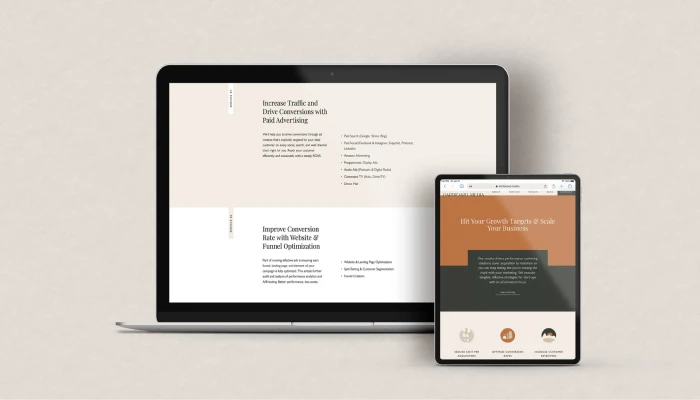Hello!
Establishing a consistent and memorable brand plays a crucial role in the success of your business. A well-executed branding strategy can help you penetrate a market and lift you above your competitors.
 Poor branding implementation can make it very difficult to gain market traction on the other hand. If you are just starting out the idea of gaining market share and creating exposure for your website and your business can be intimidating, especially if you are competing against major players who have significant marketing resources in place. By working with a professional graphic designer, you will surely build a strong brand identity.
Poor branding implementation can make it very difficult to gain market traction on the other hand. If you are just starting out the idea of gaining market share and creating exposure for your website and your business can be intimidating, especially if you are competing against major players who have significant marketing resources in place. By working with a professional graphic designer, you will surely build a strong brand identity.
Like most areas in business this can also be approached with a growth hacking mentality. Setting the right strategy and acquiring a bit of branding know-how doesn’t cost you anything. In addition there are some wonderful free do-it-yourself resources available that you can leverage to create a consistent and memorable brand. If you aren’t scared of rolling up your sleeves and putting on your marketing hat let’s jump in and explore some tips and resources to get your branding campaign off the ground.
Identify Your Core Values and Business Message
Many entrepreneurs make the mistake of jumping right into the design aspect of the branding exercise. To make sure you don’t set yourself up for failure take a step back first. The first crucial step is to identify your business’ core values . The visual representation of your business, such as your logo, needs to communicate what your business stands for. If there is a disconnect between your messaging and design your brand assets won’t resonate with your target audience. This is a good time to write your mission and vision statements if you haven’t already done so. This will help you hone in on the right messaging.
Define Consistent and Memorable Brand Colors
Once you have identified what you want your business to stand for it’s time to think about branding colors. Colors have different meanings and lend themselves as great branding aids. Many entrepreneurs overlook that fact and simply choose a pretty color combination. Although it may be pleasing to the eye it might not speak to your target audience, therefore doing your branding efforts a disservice. Color and how they influence buyer decisions has long been studied in the fields of psychology and marketing. It’s worthwhile learning what emotional responses each different color evokes.
 Here’s a crash course on the most popular branding colors to get you started:
Here’s a crash course on the most popular branding colors to get you started:
Black: Black is a popular branding choice for high-end services and products. This is no surprise as it stands for elegance, formality and power.
White: Although white isn’t technically a color, just like black, it’s a popular choice when set against a colourful background. White is associated with cleanliness, innocence and safety.
Blue: Blue evokes a sense of stability, trust and confidence. This is one of the most popular brand colors, especially in the field of finance and technology.
Red: This is a great color choice if you are looking to make a bold statement. Red evokes a sense of passion and is associated with energy and strength.
Green: Green isn’t a brand color just reserved for organic and natural products or services. It communicates fertility, growth, and harmony.
Orange: This warm color evokes a sense of happiness, creativity, and joy.
Choose a color that best aligns with your business messaging and make that your core branding color. From there you can choose accent colors that complement it well and be on your way to establishing a consistent and memorable brand.
How do you create a consistent and memorable brand?
 Now that you’ve done your homework the fun begins. The first brand asset you need to design is your logo. The logo is the foundation to your entire brand because it determines the design direction for all of your other assets like websites, social media accounts, business cards, presentations, brochures and more. Whether you are hiring a graphic designer or using a logo design application make sure you try lots of different variations. Try your logo as a brand mark, combination mark, text-only, and even an emblem. Play around with fonts, layouts, effects, etc. There are a few crucial elements to respect to create consistency in your branding strategy. Keep in mind it’s best to keep things simple when you're establishing a consistent and memorable brand. A clean and simple logo is more memorable than a complicated design.
Now that you’ve done your homework the fun begins. The first brand asset you need to design is your logo. The logo is the foundation to your entire brand because it determines the design direction for all of your other assets like websites, social media accounts, business cards, presentations, brochures and more. Whether you are hiring a graphic designer or using a logo design application make sure you try lots of different variations. Try your logo as a brand mark, combination mark, text-only, and even an emblem. Play around with fonts, layouts, effects, etc. There are a few crucial elements to respect to create consistency in your branding strategy. Keep in mind it’s best to keep things simple when you're establishing a consistent and memorable brand. A clean and simple logo is more memorable than a complicated design.
Again, the purpose of branding is to create something recognizable and memorable so it’s best to go the simple route when it comes to your logo. Once you have finalized a few concepts you like to make sure you get some unbiased feedback. It’s wonderful if you love your logo but if it doesn’t speak to potential leads it won’t serve its purpose properly. Use a survey tool or do some direct surveying of potential leads to get feedback and make revisions accordingly.
Create Consistent and Memorable Brand Assets
 With your logo in place it’s now time to approach all of your other brand assets. The natural first step is to take on your website since it’s one of your most important sales, educational and branding tools.
With your logo in place it’s now time to approach all of your other brand assets. The natural first step is to take on your website since it’s one of your most important sales, educational and branding tools.
As you implement your logo make sure you get the file size and format right or your logo will look blurry. One of the most obvious signs of an amateur brand is a blurry logo on the website. Make sure you integrate your core brand color across your website to tie it all together. In addition you can use secondary logo colors across your website for even stronger brand cohesiveness.
Once you are done with your website you can take the same approach and apply it to your social media channels . Make sure your logo is represented across all of your accounts along with your core brand colors. From here you simply rinse and repeat. Whether you are creating your business cards, presentations, flyers, brochures or anything else, make sure your logo and brand colors are consistently used throughout. There are additional visual aids to create brand cohesiveness and to elevate the quality of your designs.
Here are a few:
· Images: Professionally shot images can instantly elevate any brand asset. Try a free tool like PixaBay to find suitable photos for your project. Once you find a photo you like check if the photographer offers a whole set. For your branding you want to choose one particular set of photos and use that exclusively across all of your designs. This will ensure they all have the same feel and match your brand.
 · Icons: Icons are another great visual aid to elevate the quality of your designs. Be sure to be deliberate in your icon use and not to overdo it. Free Icon Shop offers free icons that you can use for commercial projects. Take the same approach as you do with images, find one set of icons and use that exclusively. This will turn those icons into brand recognition enforcers for you.
· Icons: Icons are another great visual aid to elevate the quality of your designs. Be sure to be deliberate in your icon use and not to overdo it. Free Icon Shop offers free icons that you can use for commercial projects. Take the same approach as you do with images, find one set of icons and use that exclusively. This will turn those icons into brand recognition enforcers for you.
· Fonts: Fonts of course make a big difference visually but are also a great brand enforcement tool. Choose 2-3 different fonts that you use across all of your content, whether that’s your website, blog, social media posts and slide deck. 1001 Free Fonts is a great resource to locate fonts that you can download for free in TTF format.
As you build out additional brand assets make sure you put in place and unbiased feedback loop. This could be through business partners but ideally it should be potential leads or existing customers. It’s easier to get feedback first and make revisions than to launch and then having to redesign or reprint.
Enforcing Brand Guidelines
As you grow your business you’ll likely hire more people or start contracting more work. Your branding is only as good as your brand guidelines and how strictly they are enforced. Writing comprehensive guidelines will let employees and contractors know how to exactly use your logo, brand colors, which fonts to use, etc.
Sharing your brand guidelines on your website is also a good idea. This way reporters or anybody else covering your business will showcase your branding in the proper way to make sure you're establishing a consistent and memorable brand.
 Here’s what you should include in your guidelines:
Here’s what you should include in your guidelines:
- Your mission and vision statement or brand message
- A brief history of your company
- Your logo and how it should be used (size, spacing and any other rules)
- Your core brand colors as well as secondary colors (include hex codes)
- Your brand fonts (font name and conditions on how to use them)
- Image styles (include samples of your main images)
- Business cards and other stationery examples
It's Time to Establish A Consistent and Memorable Brand
Creating a consistent and memorable brand takes time and effort. The key to developing a professional brand is consistency. Brand recognition is all about repetition. If your target audience is exposed to your brand in exactly the same way over and over again they will eventually start to see you as a consistent and memorable brand. This in turn will help you stand out from your competitors. Now it’s time to apply your growth hacking mindset and get busy. Apply the tips outlined in this article and try some of the free resources listed. This will set you on the right path to establishing your brand.
- 6 Technologies To Improve Your Branding
- How to Boost Your Brand Reputation if You Are a Small Business?
- Brand Marketing and Performance Marketing in a Nutshell
- Why Metaverse is Rising: Crypto, NFT, and Big Brands
- 7 Tips for Protecting Your Brand Against Cyberattacks
- 7 Effective Tactics For Humanizing Your Brand (With Examples)
- 5 Ways to Increase Brand Awareness Using NFTs
- How to Successfully Rebrand Your Business
- 5 Best Online Tools to Create a Logo in Minutes
- Tips for Choosing the Right Color Palette for Your Print Ad Designs
Thank you!
Subscribe to our newsletter! Join us on social networks!
See you!






